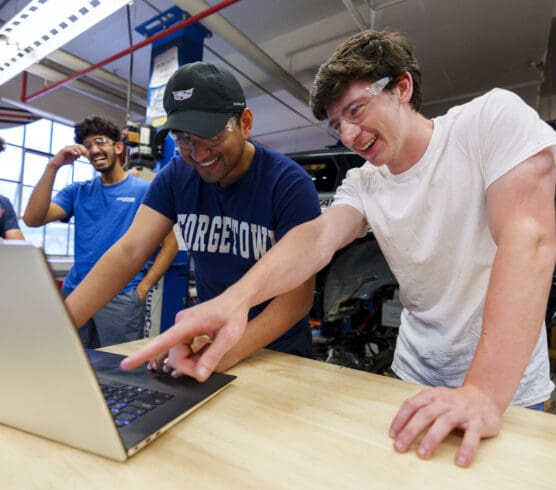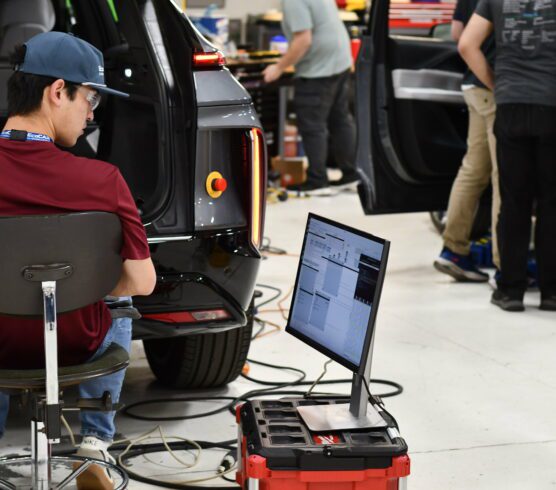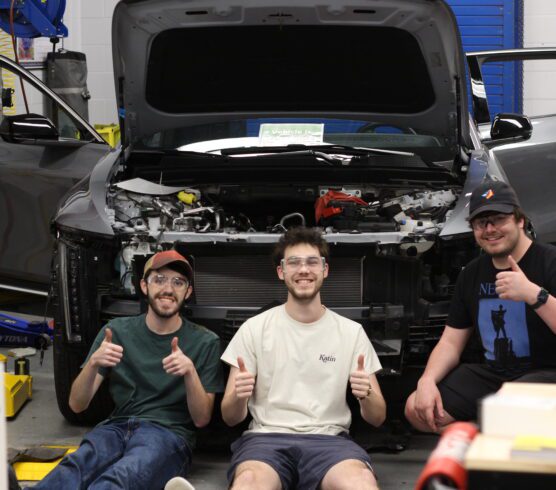Sponsors provide the hardware, software, training, and support the teams need to integrate technologies into their competition vehicles.
This arrangement gives students access to components and systems that might otherwise be unavailable or too expensive for them to use. Sponsors are able to promote their technologies and observe how they perform during rigorous and innovative use. Sponsors have the opportunity to meet, work with, and recruit hundreds of the nation’s most motivated and talented engineering students. Sponsors also gain international media coverage and develop partnerships with government, industry, and academia.
MathWorks
MATLAB and Simulink are tools of inspiration and innovation used at more than 5,000 universities worldwide to accelerate the pace of learning, teaching and research in engineering and science. In addition, because they are widely used for research and development throughout industry, MATLAB and Simulink also help prepare students for their future careers. MATLAB and Simulink users are advancing engineering in vital areas using techniques like Model-Based Design to change how systems as diverse as automobiles, cell phones, robots, washing machines, wind turbines and hearing implants are developed. Mathematical models, formerly the province of research, are now used to analyze, design, implement and test these increasingly complex systems, addressing the competitive need to innovate while reducing development costs and time-to-market. In education, these same approaches are providing students with a stronger systems perspective while enabling more engaging hands-on or project-based learning, providing them with the technical skills to seamlessly transition from academia to industry. Learn more at www.mathworks.com.
and Simulink are tools of inspiration and innovation used at more than 5,000 universities worldwide to accelerate the pace of learning, teaching and research in engineering and science. In addition, because they are widely used for research and development throughout industry, MATLAB and Simulink also help prepare students for their future careers. MATLAB and Simulink users are advancing engineering in vital areas using techniques like Model-Based Design to change how systems as diverse as automobiles, cell phones, robots, washing machines, wind turbines and hearing implants are developed. Mathematical models, formerly the province of research, are now used to analyze, design, implement and test these increasingly complex systems, addressing the competitive need to innovate while reducing development costs and time-to-market. In education, these same approaches are providing students with a stronger systems perspective while enabling more engaging hands-on or project-based learning, providing them with the technical skills to seamlessly transition from academia to industry. Learn more at www.mathworks.com.
National Science Foundation
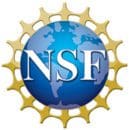 The National Science Foundation (NSF) is a longtime supporter of the U.S. Department of Energy’s Advanced Vehicle Technology Competitions. In addition to providing financial support to EcoCAR 3, each year the NSF provides awards to faculty members who have made significant contributions to the goals of the EcoCAR 2 program and to engineering education. NSF is an independent federal agency that supports fundamental research and education across all fields of science and engineering, with an annual budget of approximately $6.5 billion in fiscal year 2009. NSF funds reach all 50 states through grants and cooperative agreements to nearly 2,000 universities and institutions. Each year, NSF receives about 55,600 competitive requests for funding, and makes about 13,000 new funding awards. The NSF also awards over $425 million in professional and service contracts yearly. For more information, visit www.nsf.gov.
The National Science Foundation (NSF) is a longtime supporter of the U.S. Department of Energy’s Advanced Vehicle Technology Competitions. In addition to providing financial support to EcoCAR 3, each year the NSF provides awards to faculty members who have made significant contributions to the goals of the EcoCAR 2 program and to engineering education. NSF is an independent federal agency that supports fundamental research and education across all fields of science and engineering, with an annual budget of approximately $6.5 billion in fiscal year 2009. NSF funds reach all 50 states through grants and cooperative agreements to nearly 2,000 universities and institutions. Each year, NSF receives about 55,600 competitive requests for funding, and makes about 13,000 new funding awards. The NSF also awards over $425 million in professional and service contracts yearly. For more information, visit www.nsf.gov.
California Air Resources Board
 California’s state legislature established the Air Resources Board in 1967 to protect public health, the economy, and the state’s ecological resources through the reduction of air pollution. With the passage of AB 32, the agency must now also develop and implement strategies to reduce greenhouse gas emissions. Since its formation, the ARB has successfully worked with the public, environmental groups,businesses, and local and federal agencies to cooperatively reach our clean air goals. While many problems persist, California now enjoys its cleanest air in more than 50 years. Learn more about the ARB: http://www.arb.ca.gov/.
California’s state legislature established the Air Resources Board in 1967 to protect public health, the economy, and the state’s ecological resources through the reduction of air pollution. With the passage of AB 32, the agency must now also develop and implement strategies to reduce greenhouse gas emissions. Since its formation, the ARB has successfully worked with the public, environmental groups,businesses, and local and federal agencies to cooperatively reach our clean air goals. While many problems persist, California now enjoys its cleanest air in more than 50 years. Learn more about the ARB: http://www.arb.ca.gov/.
Freescale
Freescale is a global leader in the design and manufacture of embedded semiconductors for the automotive, consumer, industrial, and networking markets. The privately held company is based in Austin, Texas, and has design, research and development, manufacturing, and sales operations around the world. For more information, visit www.freescale.com.
Clean Cities
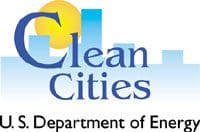 Clean Cities is part of the Vehicle Technologies Program in the U.S. Department of Energy’s Office of Energy Efficiency and Renewable Energy. Clean Cities strives to advance the nation’s energy, environmental, and economic security by supporting local decisions to reduce our dependence on imported petroleum. Clean Cities has a network of approximately 90 volunteer coalitions, which develop public/ private partnerships to promote alternative fuels and advanced vehicle technologies, such as electric drive vehicles, and other petroleum reduction practices, such as idle reduction technologies and fuel economy initiatives. The Clean Cities program is funding the EcoCAR 3 communication and project manager assistantship. This presents a great opportunity for students to participate in the EcoCAR 3 communications, marketing, project management, and business efforts and support their local Clean Cities coalitions. Learn more about Clean Cities: http://www.eere.energy.gov/cleancities/
Clean Cities is part of the Vehicle Technologies Program in the U.S. Department of Energy’s Office of Energy Efficiency and Renewable Energy. Clean Cities strives to advance the nation’s energy, environmental, and economic security by supporting local decisions to reduce our dependence on imported petroleum. Clean Cities has a network of approximately 90 volunteer coalitions, which develop public/ private partnerships to promote alternative fuels and advanced vehicle technologies, such as electric drive vehicles, and other petroleum reduction practices, such as idle reduction technologies and fuel economy initiatives. The Clean Cities program is funding the EcoCAR 3 communication and project manager assistantship. This presents a great opportunity for students to participate in the EcoCAR 3 communications, marketing, project management, and business efforts and support their local Clean Cities coalitions. Learn more about Clean Cities: http://www.eere.energy.gov/cleancities/
Learn more about all of the EcoCAR 3 sponsors by visiting ecocar3.org/sponsors.
